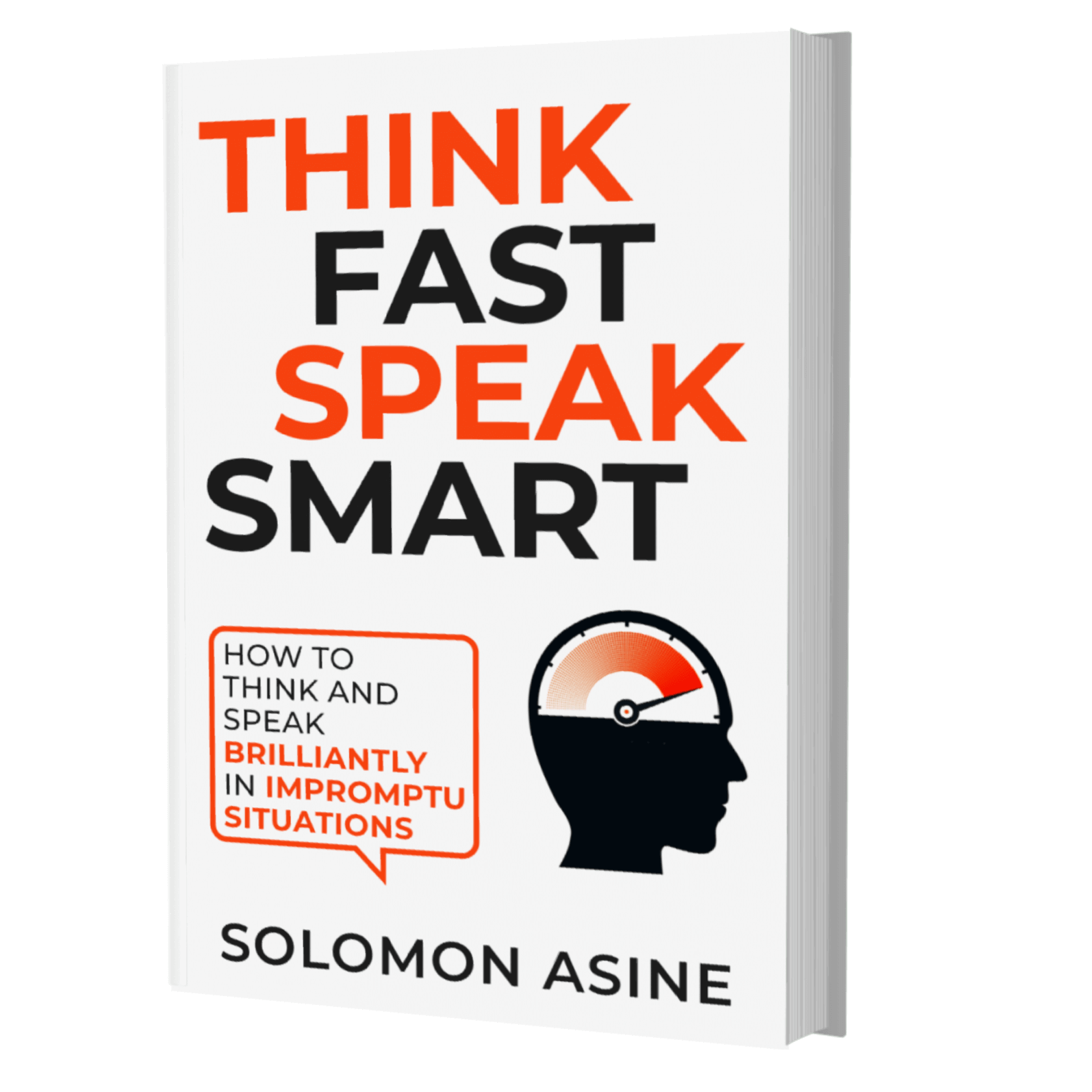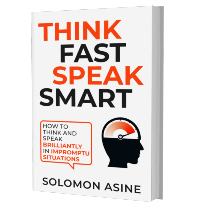
Leaving a Toxic Job: 10 Steps to Get Out
Have you ever found yourself stuck in a job that drains the life out of you? A challenging 9 to 5 job can be difficult
Imagine that you are at a gathering with about seven other not-too-familiar people, and the room is just like a graveyard, so silent that you could hear a pin drop. You tried breaking the ice, but it only resulted in brief conversations, followed by a dead silence. And then some other stranger walks into the room, and the atmosphere changes. The energy in the room went from zero to a hundred. Suddenly, everybody starts talking with one another, laughing and having lively conversations.
What do you think is the difference between your unproductive effort to break the ice and the magical performance of the stranger that walked in? Social intelligence. The stranger used the right body language, said the right words, and used the right amount of energy that was effective enough to change the atmosphere.
Social intelligence goes beyond breathing life into a “dead” gathering, it is relevant in diverse interpersonal situations.
The term “social intelligence” was originally defined in 1920 by Edward Thorndike as “the ability to understand and manage men and women and boys and girls, to act wisely in human relations.” This is a fundamental truth of what social intelligence is all about, even though there are different variations to the definition.
For example, social intelligence has also been defined as a person’s competence to understand his or her environment optimally and react appropriately for socially successful conduct. Here is another definition; social intelligence is the ability to get along well with others and to get them to cooperate with you.
Despite all the definitions that are associated with social intelligence, it all comes down to having productive interactions with people and successfully navigating social situations.
Why is it such a big deal? Why is it important to learn about social intelligence? We know that society still places great emphasis on book smart, which, of course, is important, but I am sure you know many people who are book smart but fail miserably in social situations. So, the ability to connect with people and successfully navigate social situations is crucial for attaining success. Thorndike, in his original note, affirms that such interpersonal effectiveness is vital for success in many fields, particularly in leadership.
Social influence – You can control the outcome of social interactions. You can call that social dominance.
Less awkward interactions – When you are socially intelligent, you can find rhythm and synchronicity in social situations, preventing awkward interactions
Valuable friendships – You have a better chance of dealing with difficult situations when you have important and valuable friends that have access to information and resources.
Earn the respect of your peers – being socially intelligent make your peers hold you in high regard.
More productive interactions with both men and women – When you are socially intelligent, you can interact effortlessly with any gender.
Promotions at work: You stand a higher chance of getting a promotion at work when you are socially intelligent.
To help break down the concept of social intelligence, Daniel Goleman, in his book “Social Intelligence: The Revolutionary New Science of Human Relationship,” proposes that there are two broad categories to the subject; social awareness and social facility.
Have you ever been in a conversation with someone, and they can’t sense that you are not interested in what they are saying, and they keep going on and on? These people are not able to sense your feeling and thoughts. Goleman describes social awareness as the ability that extends from immediately sensing someone’s inner state to understanding their feelings and thoughts. He breaks social awareness down to the following:
Primal empathy: This is the ready ability to sense other people’s feelings. According to Goleman, this ability is activated by mirror neurons. So, primal empathy tells you how people feel or what they are thinking even when they are not saying anything or are trying to suppress their emotions. Feelings always have a way of leaking out.
Attunement: This has to do with listening with full receptivity. Attunement helps you go beyond mere fleeting sensation to sustained presence. This is a great foundation for rapport. Attunement is about listening, offering our full undivided attention to an individual, with the sole intention to understand them. When this much attention is given, it guides your speech, which becomes a reflection of what the other person feels, says, or does.
Empathic accuracy: Empathic accuracy builds on primal empathy. It goes beyond sensing what others are feeling, to understanding their thoughts and intentions. This level of awareness of someone’s intentions allows for accurate empathy, which ultimately helps us to predict what a person will do.
Social cognition: It is a fact that some people are insensitive to the social world. With social cognition, you understand how the social world works. You know exactly what to expect in social situations, you are attuned with social trends, you know what is in vogue and what is not.
Having sound social awareness alone does not make you effective in dealing with people. It is one thing for you to sense someone’s feelings and understand their thoughts and intentions. It is another thing for you to know exactly what to do about what you sense and feel about the person. This brings us to social facility.
Social goes further to enable smooth and productive interaction. Just like social awareness, social facility includes the following:
Synchrony: Have you ever watched from a distance, two people having a conversation, and you can immediately tell that they are connecting really good? You can’t hear what they are saying, but you can see the rhythm and synchrony between them. The laughter, movement, gestures, are all in sync. This is what synchrony is all about; it lets you glide gracefully as in a dance, in this case, a nonverbal dance with another person.
Self-presentation: This is simply the ability to come across effectively. It is the ability to make a good impression by the way you present yourself. When you think of self-presentation, you can think of charisma. Charisma is an essential piece of self-presentation. Also, there are people who can’t control their emotions. Goleman mentions that the ability to “control and mask” the expression of emotions is sometimes considered key to self-presentation.
Influence: There are several instances where a conversation starts with a simple “I am a better driver than you” and then end with “You are stupid,” “Get the f**K out of here,” “You are an idiot,” all the possible curse words, and maybe physical confrontation. Influence helps you control the outcome of your interactions and defuse an intense atmosphere.
Concern: when you are concerned, you are willing to take the time and effort to help others. Concern reflects your capacity for compassion. People who are manipulative in their interactions lack concern. Concern fosters a deep connection in interaction. It breeds ground for mutual respect.
Although technology and social media are slowly isolation us, it doesn’t change the fact that we as humans are genetically engineered as social animals. We have an innate desire for friendships and relationships. A desire that social media following and technology cannot satisfy.
Some people get dogs, cats, or even snakes, and other kinds of pets to replace humans. I love pets too, but there is so much that a pet can do. Building strong social relationships is worth the effort. Research has shown that strong relationships improve our immune system and help combat disease. Conversely, loneliness, and weak relationships are a major source of stress, depression, and other health concerns.
The only question is, are you socially intelligent?

To empower you to cultivate a strong self-esteem that transforms your relationships and equips you to overcome life’s obstacles with resilience
New!!! Free Training Replay in...
Check out our latest articles. Boost your social intelligence

Have you ever found yourself stuck in a job that drains the life out of you? A challenging 9 to 5 job can be difficult

You can express yourself confidently without feeling shy or experiencing burnout. Here is how to exude confidence as an introvert. As an introvert, maintaining your

Anyone, including introverts, can live an interesting and fun-filled life. Here is how to be interesting as an introvert. Generally, many people believe that introverts

We sometimes wonder if going into a relationship with a fellow introvert is a good idea. I mean, won’t the relationship be as boring as hell? Maybe not really!

Are you ready to get out of your shell to start your dream business? Here is how to be an entrepreneur as an introvert and become successful!

As an introvert, you might be wondering if you really can become successful as a business owner. Read on to know how business success works for introverts.

Sign up for our mailing list and you will receive the first chapter free!
By signing up, you agree to our terms and privacy policy.
Warning: Apply The Methods in This Training Responsibly

Sign up for our mailing list and get the first chapter for free!
By signing up, you agree to our terms and privacy policy